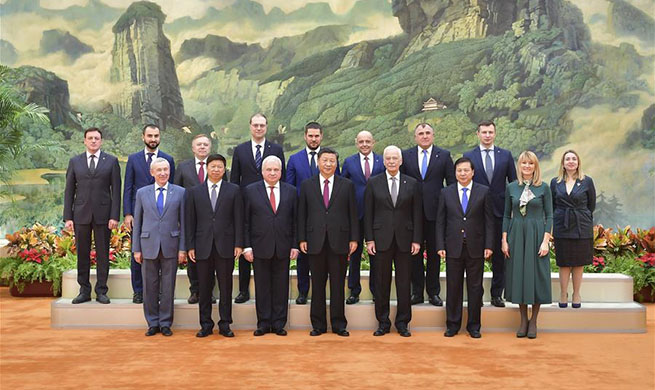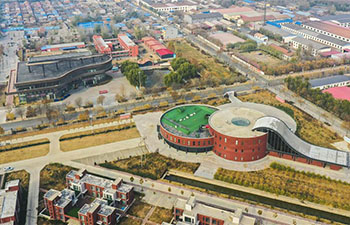GENEVA, Nov. 25 (Xinhua) -- Levels of heat-trapping greenhouse gases in the atmosphere have reached another new record high, which is to inflict increasingly severe impacts of climate change upon future generations, a latest UN report warned on Monday.
"There is no sign of a slowdown, let alone a decline, in greenhouse gases concentration in the atmosphere despite all the commitments under the Paris Agreement on climate change," said Petteri Taalas, secretary-general of the World Meteorological Organization (WMO), at the launch of The WMO Greenhouse Gas Bulletin on Monday.
"It is worth recalling that the last time the Earth experienced a comparable concentration of CO2 (carbon dioxide) was three to five million years ago. Back then, the temperature was two to three degrees Celsius warmer, sea level was 10 to 20 meters higher than now," he said.
The WMO bulletin showed that globally average CO2 concentrations reached 407.8 parts per million (ppm) in 2018, up from 405.5 ppm in 2017. The increase in CO2 from 2017 to 2018 was very close to that observed from 2016 to 2017 and just above the average over the last decade. Global levels of CO2 crossed the symbolic and significant 400 ppm benchmark in 2015.
While CO2 remains in the atmosphere for centuries and in the oceans for even longer, concentrations of methane and nitrous oxide also surged by higher amounts during the past decade, the WMO said. Since 1990, there has been a 43 percent increase in the warming effect on the climate resulted from long-lived greenhouse gases, of which CO2 accounts for about 80 percent.
The bulletin further identifies fossil fuel combustion as the dominant player in the increase of atmospheric CO2. Fossil fuels were formed from plant material millions of years ago and do not contain radiocarbon. Thus, burning it will add to the atmosphere radiocarbon-free CO2, increasing CO2 levels and decreasing its radiocarbon content.
Unfortunately, global emissions are not estimated to peak by 2030, let alone by 2020, if current climate policies and ambition levels are maintained, the bulletin said, citing Emissions Gap Report 2019 by the United Nations Environment Program, which indicates that greenhouse gas emissions continued to rise in 2018.

















